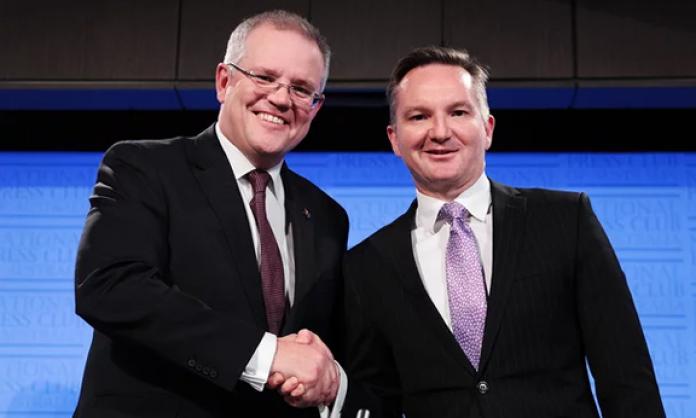I must have been one of only a handful of people to bother tuning in to the National Press Club Treasurers’ Debate at lunchtime on 27 May.
After all, the federal budget and budget reply were handed down only a month ago, and the Pre-election Economic and Fiscal Outlook was released three weeks later. There was little chance that any new information would be forthcoming.
As for the exchange itself, Chris Bowen vs. Scott Morrison promised all the excitement of a cardboard box slowly wilting in the rain – where they were the rain and the viewers were the box.
One thing that caught my attention, however, was the casual use of the phrase “human capital”. The shadow treasurer, from the so-called party of labour, favourably quoted incoming Reserve Bank governor Philip Lowe on the need to invest in it.
Bowen mixed talk of social justice through education with base economic calculations: children will grow to be inputs for the economy, creators of value for businesses and boosters of national output.
Economists have considered human beings as capital for more than two centuries at least. And our economic system is built on a worker’s capacity to labour being a commodity – “variable capital”, in Karl Marx’s words.
But the concept “human capital” is grossly reactionary, popularised in the 1960s by ultra right wing Chicago School economist Gary Becker, not to critique the system, but to naturalise it.
Pairing life with dead labour, creativity with exploitation, “human capital” is a gauge of the economic worth of human beings: the cost of producing one, the potential value of one as a commodity in the production process, the future income stream of one.
This reduction of humanity to our role in value generation – or our drag on capital accumulation if we are not “value added” – is one of the most debasing aspects of capitalist society.
The fact that the category is so routinely and casually deployed (even in the union movement), without reproach, is a sign of how effectively market logic has colonised those areas of life that should be sacrosanct.
Yes, this was a debate between two members of the ruling class, so I shouldn’t have expected anything better.
But that doesn’t mean we should just accept such degrading of humanity – particularly when it comes from an ALP determined to convince us that it will stand up for workers and the income poor against the bosses.
It is the calculus that underpins categories such as “human capital” that gives logical force to categories such as “undeserving poor” and which gives greater currency to arguments about people – be they elderly, disabled or unemployed – being “burdens” on society.
Because if they can casually talk about humans being capital, then they’ve already decided that our worth lies only in our capacity to make others rich. Outside of that capacity, we are nothing but scrap.








